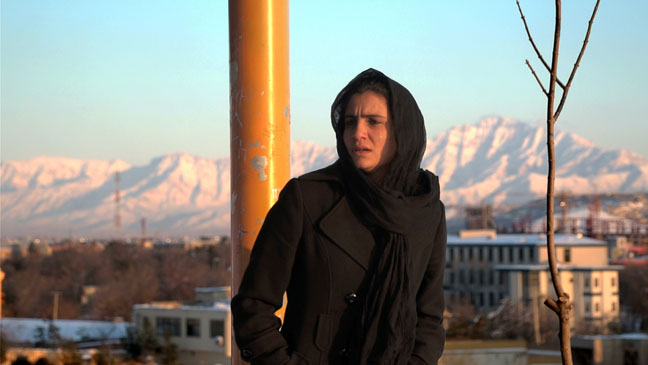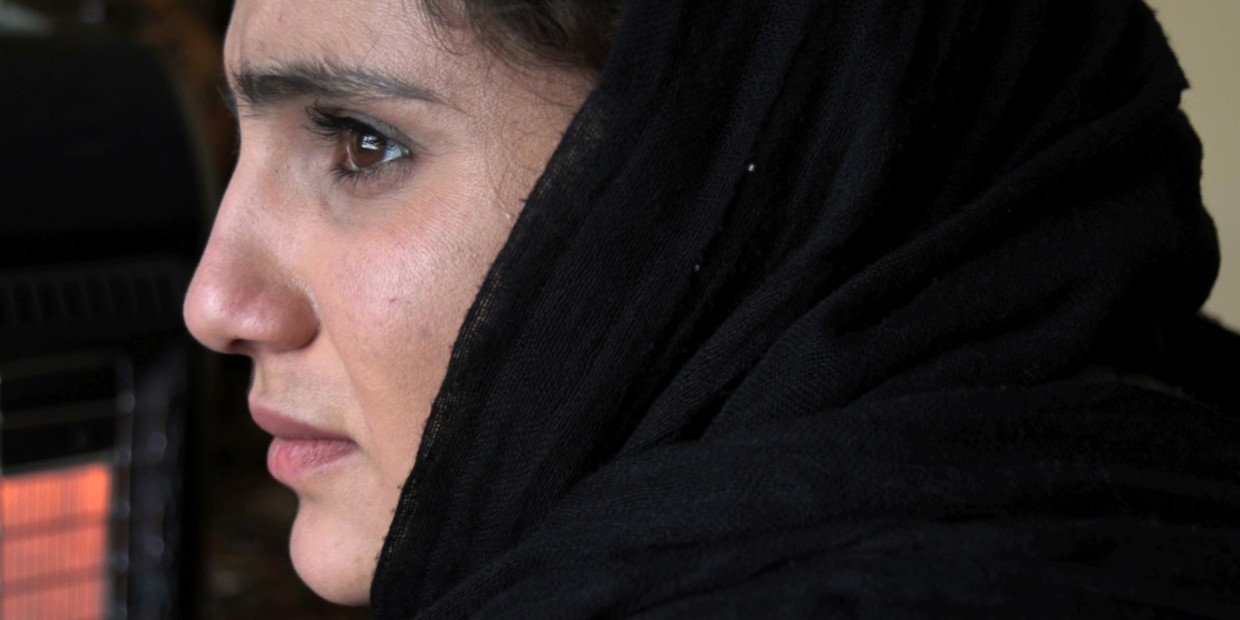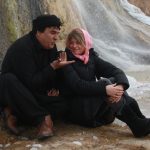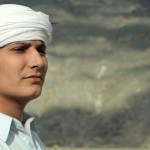By Hannah Drennan
Directed by Barmak Akram
It’s certainly surprising when we hear the protagonist – a young Afghan girl – ask her mother “what shall I wear?” and perhaps even more unexpected is her mother’s reply – “wear what you want.” The Afghanistan in Wajma: An Afghan Love Story is one unseen before on film; a country held in constant tension by the coming together of archaic societal norms and technological modernity, western and middle-eastern civilisations. War is a mere afterthought in this affective drama that begins as a tender teenage romance. In his second feature to date – a screenwriting prizewinner at Sundance – Kabul-born director Barmak Akram gives the sense of a new and authentic portrait of his native country using a naturalistic documentary style. “From Afghanistan we only know the war,” said Akram introducing his film at Sundance, “I wanted to show the young people’s life, and their love stories.”
Wajma admires the confident, flamboyant Mustafa hopefully from the sidelines of a family wedding. Shy and awkward, she could easily be a school girl of 15 – though we learn that twenty-year-old Wajma will soon embark on her studies at university. Several guests, including Mustafa, arrive in 4x4s dressed in flashy Western-cut suits – you’d almost be forgiven for thinking it were an American wedding.

Mustafa and Wajma begin seeing one another in secret and what follows is a brief but compelling romance conducted for the most part from the relative safety of Mustafa’s suburban apartment; his family have recently returned from Iran where they had fled during the war. However, as one had predicted, Wajma falls pregnant, and to make matters worse, her certainty about a marriage proposal from Mustafa begins to fade. She tells Mustafa – “either you marry me or I kill myself” – a declaration that seems so drastic, and yet after we witness her father’s brutal reaction to the news of her transgressions, we understand her fatalistic attitude: “Bring me the gas,” he screams at his son “I’m going to burn her.” The drawn out scene when Wajma’s father mercilessly beats his daughter is a sudden and unwelcome tonal shift from the gentle and innocent scenes between Wajma and Mustafa. Her essentially absent father, who works away months at a time dismantling landmines, returns home to fulfil his duty in defending family honour. We really believe him when he says “I cannot let her live.”
The behaviour of the male characters in the film is incomprehensible to a western audience, so specific it is to the culture it is borne out of. Mustafa is victim too, however; a product of Afghan society he is naí¯ve about sex and has inherited a misogynistic outlook that he appears to have adopted somewhat reluctantly. It is Akram’s detailed study of the male characters, particularly the father, however, that redeems them at least in part of their abhorrent treatment of Wajma. Akram’s Afghanistan is one where young boys are brutalized at an early age: Wajma’s brother, Haseeb goes to dog fights every day in the town which are attended by children, toddlers even, who look on unrestrained by the adults present.
Excellent lead performances and a seamless, economical screenplay drive this compelling drama that demands a spot amongst the “˜must-see’ middle-eastern films of recent years.
Watch Wajma: An Afghan Love Story now at FilmDoo.com. (UK & Ireland only)





